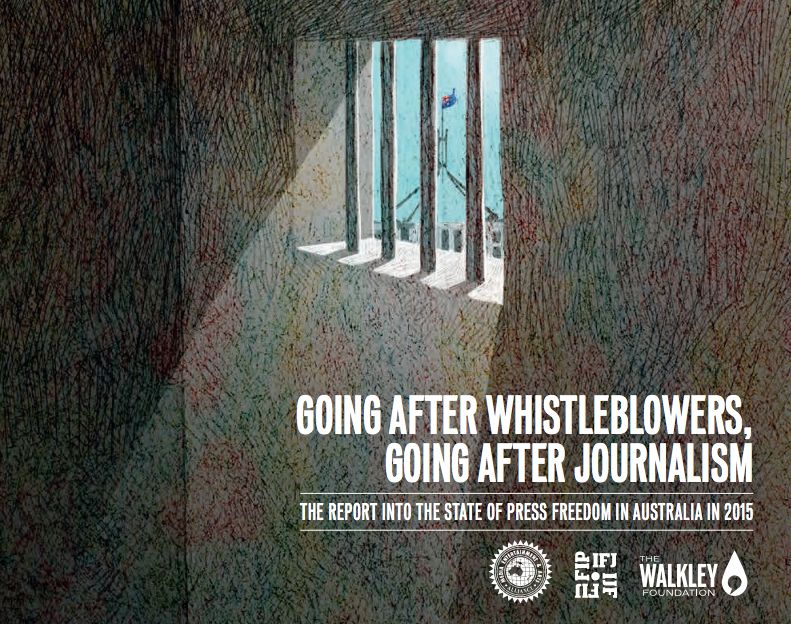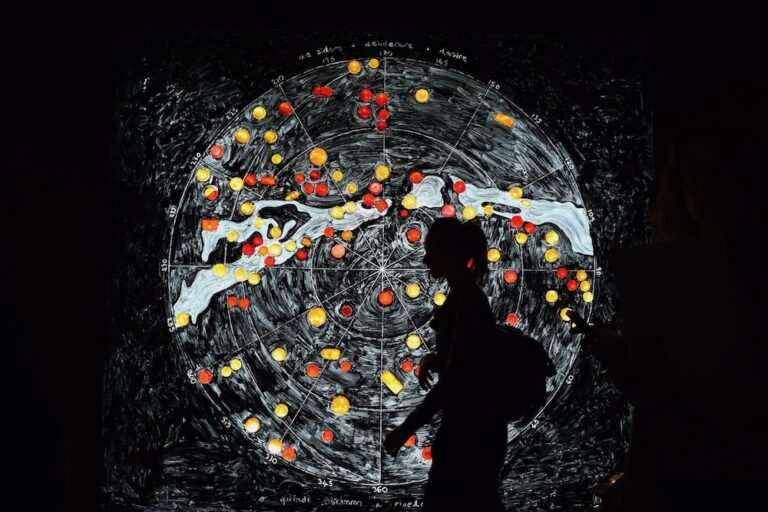As MEAA's 2015 report into the state of press freedom in Australia shows, press freedom has been under assault in many areas.
This statement was originally published on pressfreedom.org.au on 1 May 2015.
FOREWORD
By Paul Murphy, CEO MEAA.
This has been a dire 12 months for the state of press freedom in Australia – for journalists, for the communities we serve and for sources that trust us to tell their stories.
On October 30 last year, Attorney-General George Brandis admitted that the controversial section 35P of the Government’s first tranche of national security laws was written with the aim of targeting whistleblowers. “It was primarily, in fact, to deal with a Snowden-type situation,” he said. Whistleblower Edward Snowden had worked with journalists to reveal US government officials had routinely and deliberately broken the law.
On February 27 this year, the report of Parliament’s Joint Committee on Intelligence and Security revealed that targeting whistleblowers was one of the aims of its metadata retention scheme. Recommendation 27 of the committee’s report said journalists’ metadata would be accessed “for the purpose of determining the identity of a journalist’s sources”.
Public interest journalism relies on whistleblowers, the confidential sources that provide crucial information to journalists – sometimes placing both at great risk.
It is a well-known ethical principle of journalism that journalists do not reveal their confidential sources. It’s a principle that is vigorously defended because it is the only way many vital stories in the public interest can ever be told. Whistleblowers turn to journalists to help expose misconduct, illegality, fraud, threats to health and safety, and corruption. Our communities are the better for their courageous efforts to ensure the public’s right to know.
If the identity of whistleblowers can be revealed then that has a chilling effect on public interest journalism; sources needing anonymity cannot rely on their contact with a journalist being kept secret. When that happens, we all lose.
The politicians who ignored press freedom concerns about the raft of national security laws failed to understand how confidential sources and public interest journalism are linked.
If you are going after whistleblowers, you are going after journalism.
And even when they did register the concerns for press freedom, their solutions failed miserably. Take the so-called “safeguard” of journalist information warrants introduced as an amendment to the data retention scheme. The journalist information warrant will operate in secret on pain of a two-year jail term. It relies on “public interest advocates” appointed by the government. It will still allow a journalists’ metadata to be accessed to identify a journalist’s sources, and the journalist and their media organisation will never know access was granted. Nor will they be able to argue the public interest in protecting the identity of a whistleblower.
In short, the three tranches of national security legislation passed by the Parliament represent a colossal failure to stand up for press freedom, freedom of expression, privacy, freedom to access information and the public’s right to know.
As this 2015 report into the state of press freedom in Australia shows, press freedom has been under assault in many other areas. South Australia continues to reject attempts to introduce a shield law, thus exposing journalists throughout Australia to the prospect of plaintiffs going “jurisdiction shopping”.
Tasmania briefly considered breaking away from the uniform national defamation scheme to reintroduce the prospect of corporations suing for damages.
Freedom of information law reform continues to linger in limbo due to successive governments’ inaction and a lack of courage in embracing sensible remedies that ensure the public can benefit from truly open government.
And while we are all delighted at the release and homecoming of Peter Greste from his Cairo prison, the re-trial of Peter and his colleagues goes on. MEAA is also awaiting the fate of Australian journalist Alan Morison who faces up to seven years in a Thai jail for reprinting a paragraph from a Reuters news report.
This year marks the 40th anniversary of the murder of our colleagues Brian Peters, Malcolm Rennie, Tony Stewart, Gary Cunningham and Greg Shackleton in Balibo and Roger East in Dili in East Timor. MEAA is disappointed that the AFP spent five years on examining these war crimes only to abandon their investigation without seeking any co-operation from Indonesia and “without any interaction with their counterparts, the Indonesian National Police. The result is that impunity has triumphed and the killers of the Balibo Five and Roger East have literally got away with murder.
It can only be hoped that over the coming year, greater effort will be made by governments, politicians, government agencies and those who like to talk about championing press freedom to turn away from repressing freedom of expression and actually respect and promote it.
Click here to read MEAA’s report: Going after whistleblowers, going after journalism: The report into the state of press freedom in Australia in 2015.



